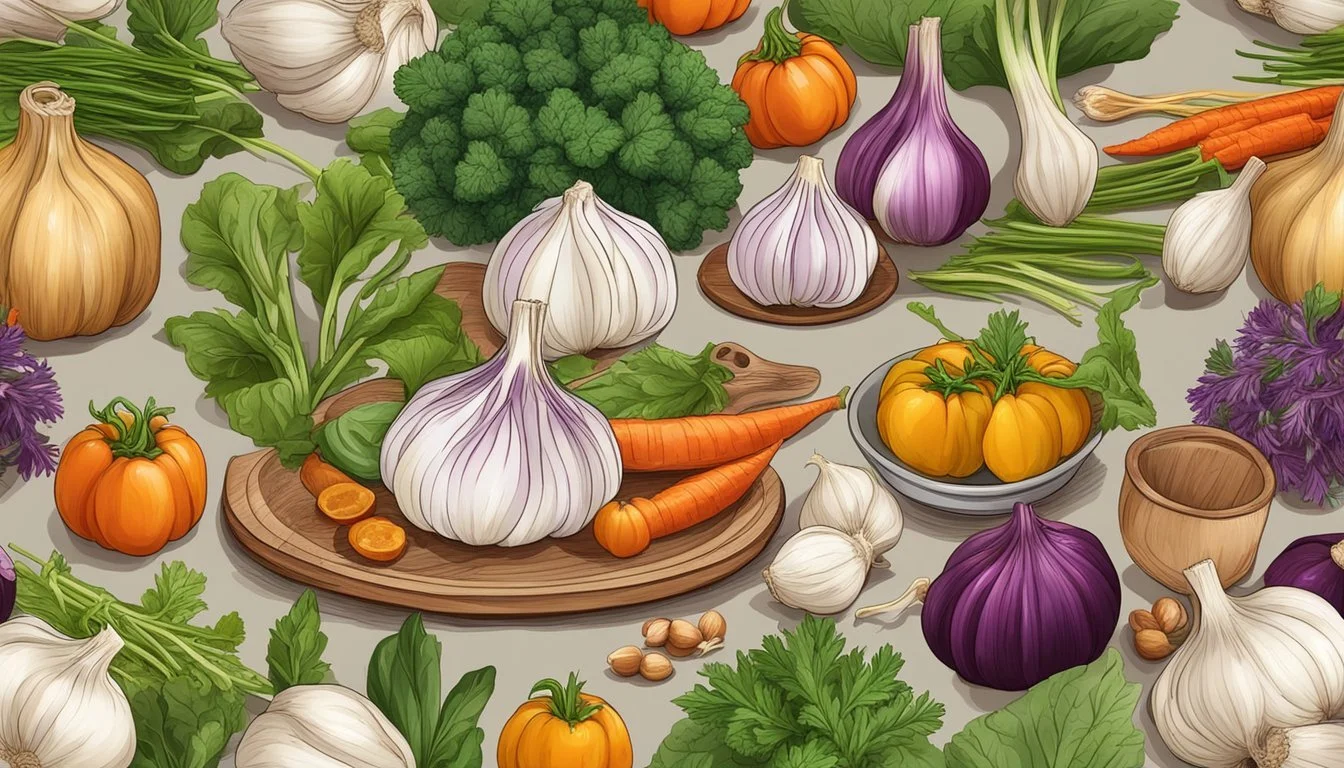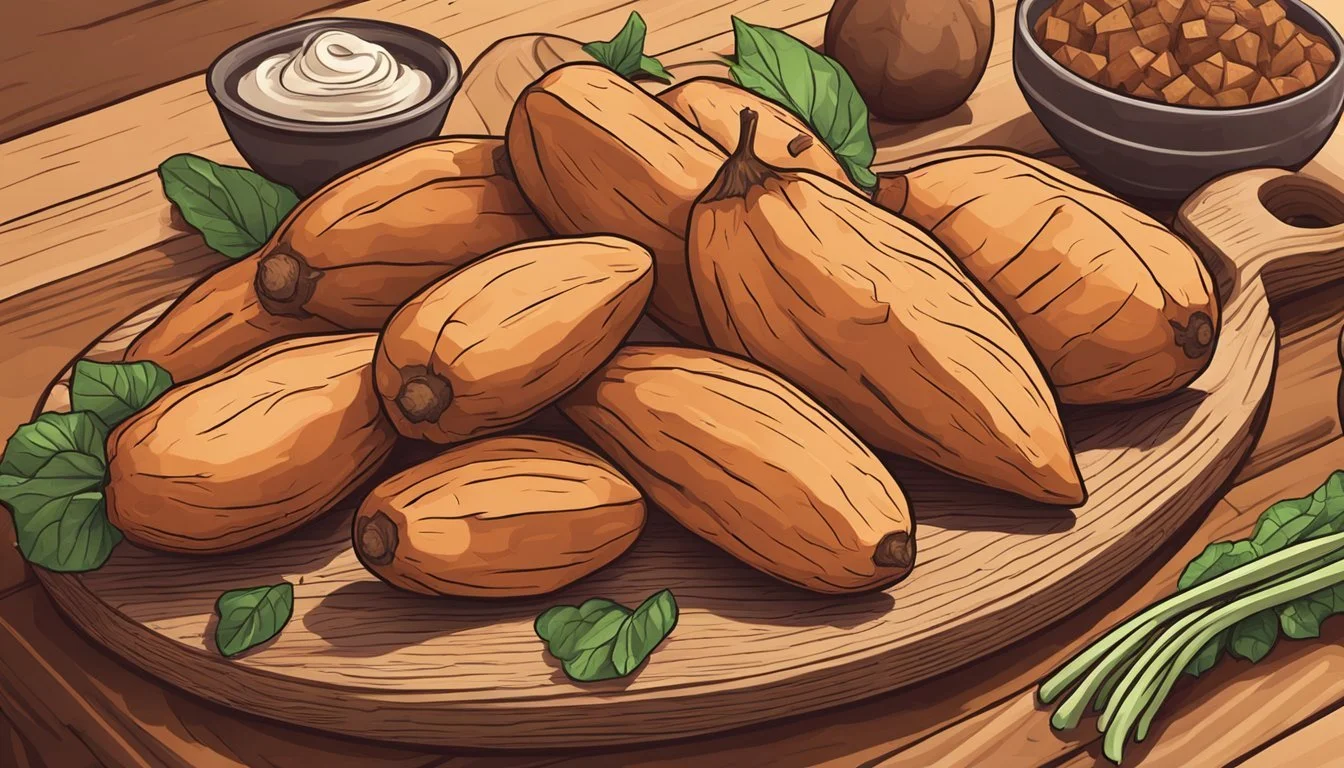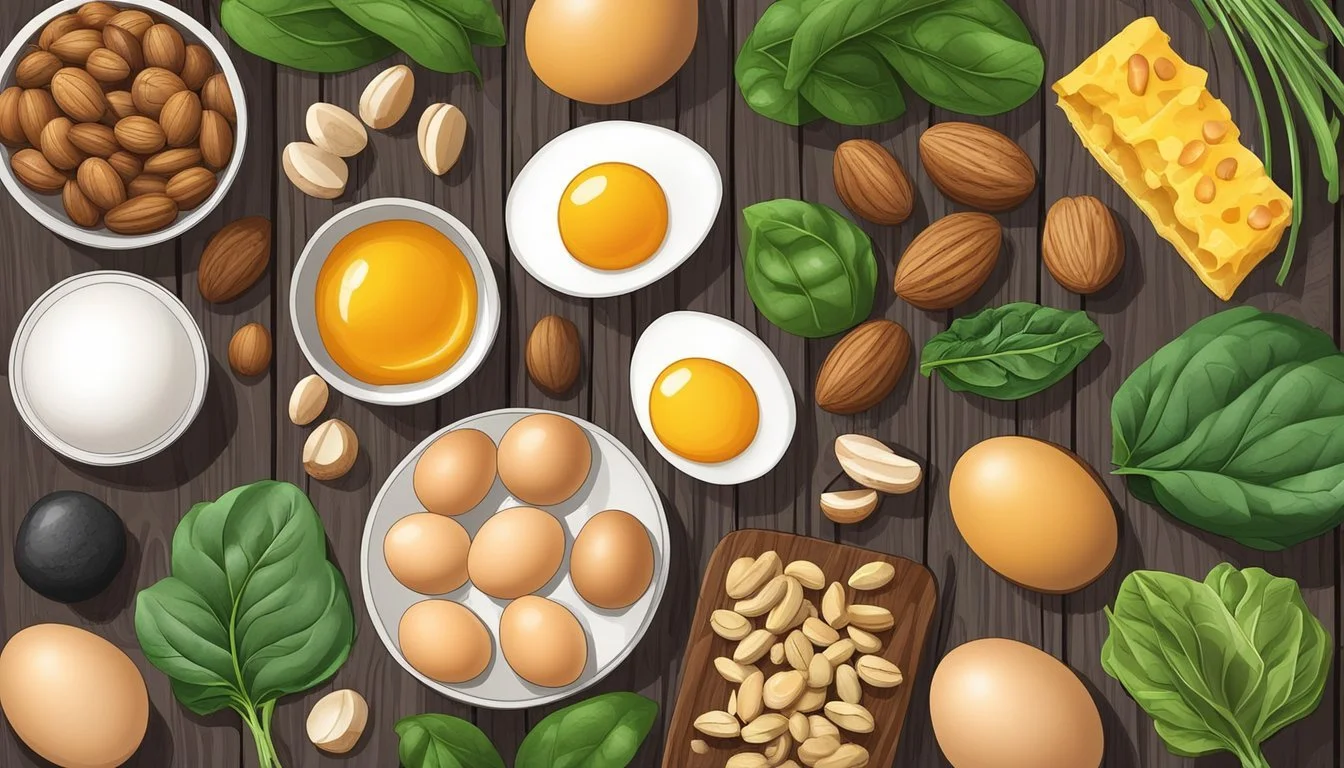Foods That Boost Your Body's Keratin Production
Top Sources for Stronger Hair and Nails
Keratin is a vital structural protein that plays a key role in maintaining the health of hair, skin, and nails. Ensuring an adequate amount of keratin in the body can lead to stronger, shinier hair, more resilient nails, and healthier skin. Consuming foods high in keratin or that promote its production can significantly enhance one's overall well-being.
A balanced diet rich in keratin-boosting foods is crucial for those looking to improve their hair and nail health. By incorporating these foods into daily meals, one can support the body's natural keratin production. Understanding which foods can assist in this process can make a notable difference in physical appearance and condition.
1) Pumpkin Seeds
Pumpkin seeds are a potent source of nutrients significant for keratin production. They are rich in biotin, an essential B-vitamin that supports the health of hair, skin, and nails.
These seeds also provide zinc, which plays a critical role in the synthesis of keratin. Zinc deficiency can lead to weak hair and slow growth.
In addition to biotin and zinc, pumpkin seeds contain omega-3 fatty acids. These fatty acids help keep the skin and scalp hydrated by supporting the production of sebum, an oily substance that protects and nourishes.
Pumpkin seeds are also abundant in vitamins A, E, and K. These vitamins help maintain healthy skin and hair and support overall cellular functions crucial for keratin formation.
2) Oysters
Oysters are an excellent source of zinc, a mineral that plays a vital role in keratin production. Zinc aids in the repair and growth of hair cells, making oysters a valuable addition to a diet aimed at improving hair health.
A single medium-sized oyster can provide a significant portion of the daily zinc requirement. For females, it can provide up to 96% of their daily needs, while for males, it covers around 75%.
Incorporating oysters into one's diet not only supports keratin production but also helps prevent hair loss. Zinc deficiency is often linked to hair thinning and loss, making oysters an effective dietary choice for maintaining strong and healthy hair.
Oysters can be enjoyed in various ways, such as raw, steamed, or added to dishes like soups and stews. This versatility makes them easy to include in many meal plans, contributing to better hair, skin, and nail health.
3) Lentils
Lentils, a type of legume, are an excellent source of plant-based protein. They contribute significantly to the body's keratin production. This is essential for healthy hair, skin, and nails.
Rich in folate and iron, lentils support various bodily functions. Folate aids in cell growth, while iron helps in transporting oxygen throughout the body.
Incorporating lentils into one's diet is simple. They can be added to soups, salads, or stews. Their versatility and nutritional benefits make them a valuable addition to any meal.
4) Garlic
Garlic is a potent food known for its various health benefits, including its ability to boost keratin production. It contains sulfur, which is essential for the synthesis of keratin in the body.
Sulfur in garlic helps strengthen hair, skin, and nails by supporting the structural protein, keratin. Including garlic in your diet can promote healthier hair and nails.
Garlic can be used in a variety of dishes, from soups and sauces to stir-fries, adding both flavor and nutritional value. It’s a simple addition that can contribute significantly to overall keratin levels in the body.
5) Salmon
Salmon is a powerhouse of nutrients that significantly contribute to keratin production. This fish is rich in protein, an essential building block for keratin, the protein that makes up hair, skin, and nails.
In addition to protein, salmon contains a high amount of omega-3 fatty acids. These healthy fats support scalp health, promoting stronger hair and less breakage.
Salmon is also a great source of biotin and Vitamin D. Biotin aids in metabolizing amino acids from protein, essential for creating keratin. Vitamin D helps keep hair follicles healthy, enhancing the production of keratin.
Including salmon in your diet provides multiple benefits, combining protein, omega-3 fatty acids, biotin, and Vitamin D. This combination supports the body's natural keratin production, leading to healthier and more resilient hair, skin, and nails.
6) Wheat Germ
Wheat germ is a nutrient-rich component of whole wheat kernels. It is packed with essential vitamins and minerals that support health. Among these nutrients, wheat germ contains biotin, a B vitamin that is crucial for keratin production.
This food is also a good source of plant-based protein, providing the amino acids your body needs to generate keratin. Including wheat germ in your diet can aid in maintaining healthy hair, skin, and nails.
Wheat germ can be easily incorporated into meals. It can be sprinkled over cereals, added to smoothies, or used in baking. Its versatility makes it a convenient addition to daily nutrition plans.
Additionally, wheat germ provides fiber, which promotes healthy digestion. This fiber content also contributes to overall nutrient absorption, further supporting the body’s ability to produce keratin efficiently.
Overall, wheat germ serves as a valuable source of biotin and protein, aiding in the natural production of keratin.
7) Egg Yolks
Egg yolks are an excellent source of biotin, a B-vitamin essential for keratin production. This makes them a valuable addition to the diet for those seeking healthier hair, skin, and nails.
Rich in proteins and lipids, egg yolks contribute to the body's ability to produce keratin, strengthening the structural integrity of these tissues.
In addition to biotin, egg yolks contain vitamins A, D, E, and K. These vitamins support overall cellular health and promote the body's natural keratinization processes.
Egg yolks are also a source of healthy fats, which can improve the absorption of fat-soluble vitamins, enhancing their benefits. For individuals looking to boost their keratin levels, incorporating egg yolks into meals can be a simple and effective strategy.
8) Kale
Kale is a highly nutritious leafy green vegetable known for its abundance of vitamins and minerals. It has significant amounts of beta-carotene, which converts to vitamin A, crucial for keratin production.
Kale is also rich in vitamin C, which helps in the synthesis of collagen, aiding in skin and hair health. Including kale in the diet can support the body's natural keratin levels.
Cooked or raw, this versatile vegetable can be added to salads, soups, and smoothies, making it easy to incorporate into various meals. Kale's contribution to keratin production makes it an excellent choice for those looking to improve hair, skin, and nail health.
9) Sweet Potatoes
Sweet potatoes are an excellent source of keratin-boosting nutrients. These root vegetables are rich in vitamin A, which is essential for the synthesis of keratin. A medium sweet potato offers over 100% of the daily value of provitamin A.
In addition to vitamin A, sweet potatoes also provide other important nutrients like beta-carotene, vitamin C, and potassium. Beta-carotene is particularly beneficial for skin and hair health, converting into vitamin A in the body.
Including sweet potatoes in the diet can help improve the strength and health of skin, hair, and nails. They can be prepared in various ways, such as baked, mashed, or incorporated into both sweet and savory dishes.
Sweet potatoes also contain biotin, another nutrient that supports keratin production. Biotin ensures healthy hair growth, making sweet potatoes a valuable addition to a diet aimed at enhancing keratin levels.
Easily accessible and versatile, sweet potatoes are an effective way to naturally boost keratin in the body. Their rich nutrient profile supports overall health, especially the integrity of skin and hair.
10) Spinach
Spinach is an excellent food for boosting keratin levels. This leafy green is packed with nutrients that support the body's natural keratin production. High in vitamins A and C, spinach aids in the synthesis of keratin and keeps hair, skin, and nails healthy.
Iron is another essential nutrient found in spinach. Iron promotes oxygen distribution in the body, which helps maintain cell health. Healthy cells are crucial for the production of keratinocytes, the cells that produce keratin.
Additionally, spinach contains magnesium and folate. These nutrients contribute to overall hair health and can prevent brittleness. Including spinach in daily meals can ensure a steady supply of these vital nutrients, aiding in the maintenance of strong, resilient hair.
Understanding Keratin
Keratin is a vital protein in the human body, essential for the health and strength of skin, hair, and nails. This protein plays a critical role in the structural integrity and protection of epithelial cells.
What Is Keratin?
Keratin is a fibrous protein found in epithelial cells, specifically in the outer layer of the skin, hair, and nails.
Its durability and protective qualities stem from high concentrations of the amino acid cysteine.
Keratin helps form a barrier to protect cells from damage and stress. This protein is not only present in humans but also in the hooves, claws, and feathers of animals.
It's categorized into alpha-keratin (found in humans and mammals) and beta-keratin (found in reptiles and birds).
The Importance of Keratin in the Body
Keratin's role is crucial for the health of hair, skin, and nails. In hair, it contributes to strength and elasticity, reducing brittleness.
For skin, keratin helps create a protective barrier, preventing toxins and pathogens from penetrating.
Nails benefit from keratin by gaining toughness and resistance to external damage. The protein also promotes wound healing and maintains hydration in the skin.
Deficiency or mutations in keratin genes can lead to disorders like keratosis pilaris or epidermolysis bullosa simplex, highlighting its essential function in maintaining structural resilience.
Benefits of Keratin-Rich Foods
Consuming foods high in keratin can lead to numerous advantages for hair, skin, and nails. These benefits are particularly notable in areas like hair health, skin condition improvement, and nail strength.
Enhancing Hair Health
Keratin is a fundamental component of hair, playing a vital role in its structure. Consuming keratin-rich foods supports hair growth, reduces frizz, and enhances shine.
Items such as eggs, fish, and chicken provide essential nutrients like biotin and protein that boost keratin production. These nutrients help maintain hair elasticity and prevent breakage.
Moreover, keratin-rich diets can mitigate the effects of environmental stressors, giving hair a healthier and more resilient appearance.
Improving Skin Condition
Keratin isn't just for hair; it's also crucial for maintaining healthy skin. This protein helps form the outer layer of skin, protecting it from damage and reducing dryness.
Foods such as red meat, milk, and yogurt contribute to increasing keratin levels in the body. These foods contain essential amino acids and vitamins that support skin cell regeneration and hydration.
As a result, a diet rich in keratin can lead to smoother, more resilient skin that is better equipped to heal and fend off daily wear and tear.
Strengthening Nails
Nails, like hair and skin, benefit significantly from keratin. A diet rich in keratin can lead to stronger, less brittle nails.
Foods like pork, nuts, and beans provide the building blocks necessary for keratin production. These nutrients help enhance nail thickness and reduce splitting and peeling.
By incorporating keratin-boosting foods into the diet, individuals can achieve healthier, more robust nails that are less prone to damage from regular activities.







